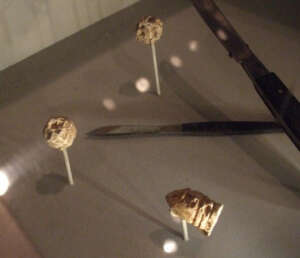Here is an excerpt from an investigative piece by environmental watch dog Greg Walcher who has exposed a creepy idea gaining steam to limit the use of anesthesia in order to reduce greenhouse gasses:
When we have to do something unpleasant, the common expression is “bite the bullet.” The phrase originated on Civil War battlefields when amputations often had to be done without anesthetics. To distract the patient from excruciating pain, he would be given a lead bullet to bite down on. Sticks or leather were common, too, but bullets were preferred because they were plentiful and because lead’s malleability prevented breaking patients’ teeth.
Some medical experts are suggesting we return to that 19th Century torture, by reducing the modern use of anesthesia during many surgeries. Why would any educated person suggest such a thing? Apparently, the gases used in anesthesia contribute to climate change.
Dr. Mohamed Fayed, a senior anesthesiologist at Detroit’s Henry Ford Hospital, explained a new study at the American Society of Anesthesiologists conference in Orlando. “Global warming is affecting our daily life and the reduction of greenhouse gas emissions has become crucial….As anesthesiologists, we can contribute significantly to this cause by making little changes in our daily practice — such as lowering the flow of anesthetic gas — without affecting patient care.”
Few of us would have guessed that anesthesia would be the next target of climate activists, but Dr. Fayed cited a 2010 study, “One hour of surgical anesthesia is equivalent to driving as many as 470 miles” in terms of greenhouse gas emissions.
An article about this new study on the American Society of Anesthesiologists contained the headline: “Reducing anesthetics during surgery reduces greenhouse gases without affecting patient care, study shows.”
We have an idea: why don’t the climate change alarmists get in line first? How about a root canal without novocain or anesthesia? Go for it.
Normally we would write off ideas like this as the mindset of radical fringe groups, but that’s what we used to think about reparations, modern monetary theory, and bans on gas-engined cars.

